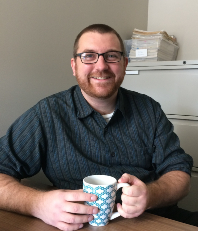Spanish Language
 Ryan M. Bessett
Ryan M. BessettSpanish Language Coordinator
The Spanish Program in the Department of Literature offers intermediate and advanced Spanish courses (LTSP 2A, 2B, 2C, 100A), as well as courses for Spanish Heritage Learners, students who grew up hearing Spanish at home or in the community (LTSP 1F, 2F, 3F, 100F). We also offer a Spanish Major and Minor. Our classes focus on learning Spanish via a communicative approach and focus on language, literature, and culture.
Spanish Courses
For non-heritage learners:
Intermediate: LTSP 2A → LTSP 2B → LTSP 2C
Advanced: LTSP 100A
For heritage learners:
Beginning: LTSP 1F
Intermediate: LTSP 2F → LTSP 3F
Advanced: LTSP 100F
Students must be placed into the appropriate course level in order to enroll. See the "Placement Exam" details below.
Placement Exam
- If you have never studied the language before, you should enroll in LISP 1A/AX
- If you have studied the language before, you may not enroll in LISP 1A/AX
- If you have studied the language before, consult with your college advisor about whether you need to take an online placement test. This test will determine which course is appropriate for you. Students who have taken AP exams in these languages or other college-level courses may not need to take the online placement test - again, check with your advisor.
- If you already understand and speak Spanish fairly fluently but you have never received a formal education in Spanish, you probably should enroll in LTSP 2D, a class designed for heritage speakers. Check with the Spanish language supervisor for proper placement.
Why Study Spanish
Over 300 million people speak Spanish in the world. Spanish is the official language of 21 countries and several transnational organizations such as UNESCO, the European Union, the Organization of American States and others. In the United States over 30 million people identify as Latinx. According to the United States Census Bureau, In California 39.1% of the population identify as LatinX/Chicanx. Moreover, the California Department of Education reports that Latinx/Chicanx students make up nearly 55 percent of all K-12 students. To put it another way, Latinx and Chicanx are the fastest growing population in California. UCSD has recognized this, and it is in the process of becoming a Hispanic Serving Institution (HIS).
With 16,000 publications, 250 TV stations and 5,100 radio stations, learning Spanish gives you access to a diverse and rich cultural universe. In addition, Spanish is a crucial language in the fields of journalism, medicine, education, public health, business and International relations, among others
Therefore, learning Spanish (or majoring in Spanish) is not only a tool that may give an edge in the labor market, but also an indispensable element to built a vibrant multilingual and multiethnic community in San Diego and California. If you are interested in learning Spanish